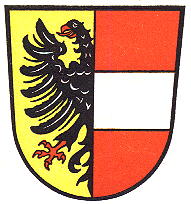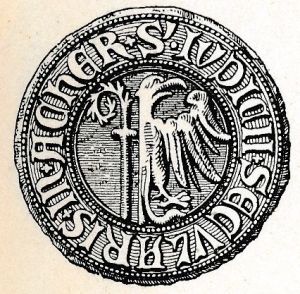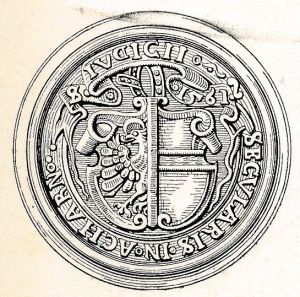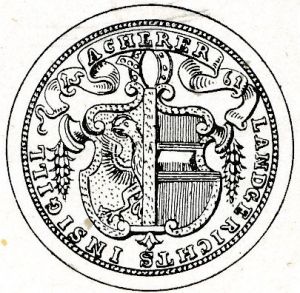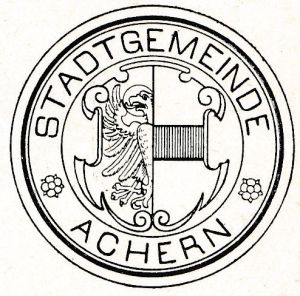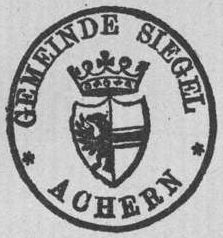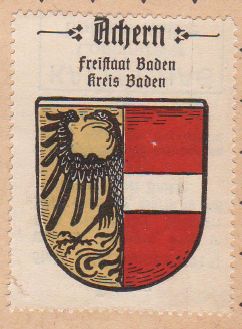Achern: Difference between revisions
Knorrepoes (talk | contribs) m (Text replacement - "{{media}}" to " {{de1}} {{media}}") |
Knorrepoes (talk | contribs) m (Text replacement - "{{de1}}↵" to "") |
||
| Line 38: | Line 38: | ||
{{media}} | {{media}} | ||
Revision as of 10:00, 26 December 2022
This page is part of the German heraldry portal Deutsche Wappensammlung |
Heraldry of the World |
|
German heraldry:
|
Selected collector's items from Germany:
|
ACHERN
State : Baden-Württemberg
District (Kreis) : Ortenaukreis (until 1972 Bühl)
Additions : 1971 Oberachern, 1972 Fautenbach, Gamshurst, Grossweier, Mösbach, Önsbach, Sasbachried, Wagshurst
| German |
In gespaltenem Schild vorne in Gold ein halber rot bewehrter und rot bezungter schwarzer Adler am Spalt, hinten in Rot ein silberner Balken. |
| English | No blazon/translation known. Please click here to send your (heraldic !) blazon or translation |
Origin/meaning
Achern did not become a city before 1808. The oldest seal of the town dates from 1415 and shows a divided shield with a crosier and a demi-eagle. The crosier symbolises the influence of the bishops of Strassburg, the eagle symbolises the fact that the town was part of the imperial area of Ortenau.
From 1561 the crosier was replaced by the arms of Austria which at the time ruled the Ortenau. The eagle at the time was the Austrian eagle, showing a golden nimbus around the head. This nimbus was removed in 1805, when the town became part of Baden.
| The seal from 1415-1561 |
The seal from 1561-1788 |
| The seal from 1561 (?) |
The seal from 1900 |
| The arms on a municipal stamp (1892) |
The arms by Hupp in the Kaffee Hag albums +/- 1925 |
Contact and Support
Partners:
Your logo here ?
Contact us
© since 1995, Heraldry of the World, Ralf Hartemink 
Index of the site
Literature: Stadler, K., 1964-1971; John and Heine, 1989; Zier, 1964.


